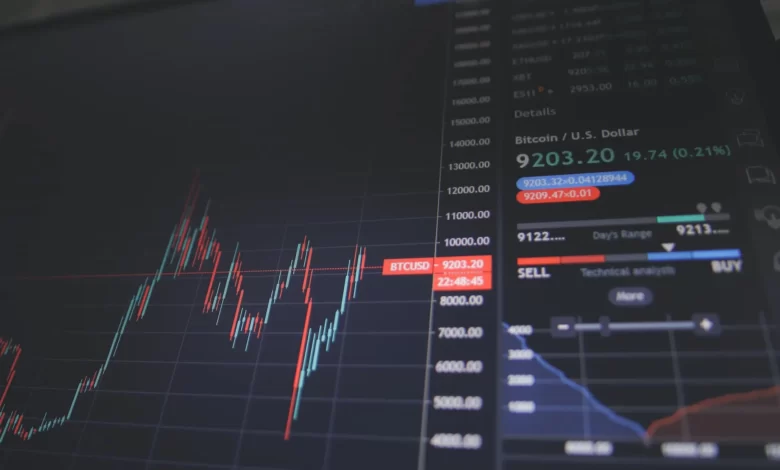
The Most Commonly Asked Questions About Crypto Answered
Cryptocurrencies represent a complex new financial frontier that many people still find confusing. To help demystify this emerging technology, here are clear answers to some of the most frequently asked questions about the world of crypto.
What Exactly Is Cryptocurrency?
Cryptocurrency refers to digital or virtual money secured by cryptography. Unlike fiat money issued by governments, cryptos operate on decentralised peer-to-peer networks supported by thousands of computers running blockchain ledgers that record transactions.
Top cryptocurrencies like Bitcoin and Ethereum are not controlled by any central authority. The decentralised structure gives users more direct control over holdings and transactions without intermediary financial institutions.
How Do Cryptocurrencies Have Value?
Cryptocurrencies like Bitcoin derive value from three key factors: their utility as decentralised digital money, verifiable scarcity enforced by blockchain networks, and market demand driven by users and investors.
Bitcoin production is capped at 21 million coins, ensuring scarcity. Utility comes from Bitcoin’s function as global digital money allowing value transfer without banks. Demand grows based on these properties and speculation.
How Can I Get Started With Crypto?
The easiest way to get started is to set up an account with a mainstream crypto exchange. After verifying your identity, you can connect bank accounts or cards to fund your account and buy popular coins like Bitcoin, Ethereum or Solana.
Buy small amounts first to understand how purchasing, transfers, and trading work. Enable two-factor authentication for account security. Start experimenting!
Where Should I Store My Crypto?
While exchanges make buying easy, storing significant crypto holdings on an exchange long-term is risky if accounts are hacked. For holdings, you intend to keep, and transfer coins to a secure private crypto wallet where you control the private keys/recovery phrases.
How Are Cryptocurrencies Taxed?
In the U.S. and many other countries, capital gains taxes apply when selling crypto for a profit. If you hold less than a year before selling, short-term tax rates apply based on your income bracket. If you hold for longer than a year, lower long-term capital gains rates apply.
Other crypto tax events include mining, staking rewards, airdrops, payments received in crypto, losses, and more. Record-keeping is essential. Consult a crypto-experienced tax pro to ensure compliance.
What Drives Crypto Market Prices?
Like any asset, crypto prices are driven by supply and demand dynamics. With limited supply schedules, demand determines valuations. Demand comes from utility value for sending payments, developers/companies utilising blockchain networks, speculative investors, and broader sentiment or hype cycles.
Major news, regulations, tech upgrades, security issues, and adoption by financial institutions also influence perceived value and prices. The interplay of these factors creates volatility.
Is Crypto Investing Safe?
Crypto investing carries substantial risks of loss due to extreme volatility and lack of investor protection. As an emerging technology, cryptocurrencies are still in a regulatory grey area in most jurisdictions. The crypto market is also a frequent target of sophisticated hacking and fraud schemes.
Never invest more than you can afford to lose. Use exchanges with robust security protections. Store holdings in private wallets under your control. Remember to be vigilant of scams. Manage risks carefully.
How Do I Choose Which Cryptos To Invest In?
Perform thorough due diligence before investing in any crypto. Assess strengths and weaknesses of the technology, tokenomics, leadership team, community support, competitive landscape, and real-world utility.
Favour projects solving meaningful problems with transparent roadmaps, sustainable token models, and reputable developers over hype-based coins with no unique value. Diversify across quality assets.
What Are NFTs?
NFT stands for non-fungible token. Unlike crypto coins, NFTs are digital collectables with unique identification codes and metadata that represent ownership of unique physical or digital items like art, videos, tweets, avatars, items in games, etc.
NFTs tokenise these otherwise reproducible items to prove authenticity, scarcity, and ownership. There is huge speculative demand driving NFT prices and trading volumes.
How Can I Accept Crypto As Payment?
Many merchants want to capitalise on crypto’s popularity by accepting it as payment. Payment processors like BitPay and Coinbase Commerce make it easy to add crypto payment acceptance to online and retail stores.
Customers can pay with top cryptocurrencies while the merchant receives settlement in fiat currency, avoiding crypto volatility risk. Accepting crypto expands payment options.
How Do Cryptocurrency Exchanges Work?
Crypto exchanges are online platforms allowing users to buy, sell and trade cryptocurrencies. Most require ID verification and connect your bank account or card to fund purchases.
Trading pairs like BTC/USD allow speculation on price movements. Exchanges earn fees on transactions. Some now offer services like crypto lending, staking, and debit cards as well. Many also custody institutional crypto investments.
How Can I Stay Ahead Of The Curve?
Given crypto’s rapid changes, success requires staying continually informed. Follow crypto news sites, blogs, forums, influencers and developers on Twitter. Enable news alerts.
Join communities to exchange insights on trends and new projects. Continual learning will help you adapt investment strategies over time as the market matures. Never become complacent.
The world of cryptocurrency represents an entire emerging financial system still in its infancy. While complex on the surface, taking time to understand the technology, risks, tax rules and ecosystem dynamics pays major dividends as this asset class continues growing into the mainstream. If you’re looking for the latest Bitcoin news today, Bitcoinist has you covered. From BTC news to altcoin updates, they can keep you up to speed with the latest in crypto.
Is Crypto Mining Profitable?
Crypto mining can be profitable but requires significant investment in specialised hardware like ASICs and GPUs. Ethereum’s proof-of-work mining is still profitable, but it is becoming very competitive. Bitcoin mining now requires industrial-scale operations.
Many other proof of work coins are mineable by individuals. But mining profitability depends on equipment and energy costs where you live. Cloud mining can be easier but carries additional risks.
How Can I Use Cryptocurrency Safely?
Following on from the question about whether or not crypto is safe to invest in, using crypto safely requires following security best practices like using hardware wallets for holdings, being vigilant against phishing attempts, enabling two-factor authentication everywhere, and never sharing private keys or recovery phrases online.
Only download wallet apps from official sources, use encrypted and password-protected devices, and avoid public WiFi when accessing accounts. Be cautious and thoughtful in all crypto activities.
Should I Speak To A Financial Advisor About Crypto?
A financial advisor experienced with cryptocurrencies can guide portfolio allocation, risk management, tax optimisation and long-term planning specific to crypto assets. This can be well worth the cost to have an expert help navigate such a complex, risky new investment category.
Ask potential advisors about their crypto knowledge, research process and philosophy before engaging services to ensure a good fit.
How Can I Follow Regulations Affecting Crypto?
Government policies and regulations have huge impacts on cryptocurrency markets, yet are constantly shifting and vary between jurisdictions. To stay up to date, follow regulatory agencies like the U.K. FCA on Twitter and sign up for newsletters from law firms specialising in crypto.
Bookmark pages at agencies tracking crypto developments. Be aware of tax policies too which are still evolving. Staying compliant is every investor’s responsibility.
Hopefully, these additional questions and answers help further unravel the intricacies of the crypto landscape so you can continue your learning journey on this new technological frontier.






